The Ecstasy. (and maybe the agony.) 7x10’. Acrylic, vinyl, enamel, spray paint, ash, string, pebbles on canvas. 2024.
I had a great studio visit with art historian and curator, Katie Anania, the other day. I had gotten Katie to Austin to speak about her new book, Out of Paper1, at our neighborhood bookstore, First Light.
Katie & I knew each other in the early 2010s, when she was in Austin pursuing her PhD, and beginning the research that became this book. I will aways remember when she first visited my studio and proclaimed, “You have no style!” with a sense of wonder. I have always painted in many directions.
Ablutions Trio. Acrylic on paper. 44x55” each. 2018. Private collection of Kendra Scott.
It was hard not to talk first about the election. “I think we have a deep seated urge to be disciplined,” said Katie. “Something about the authoritarian appeals to us on a subconscious level.”
I thought about this. Jung thought that deeper than our own personal subconscious was the collective unconscious. And it is holding all the darkest, most tormented parts of our psyche. This relates to the spiritual belief held by many, that none of us will be free until all of us our free.
Then I thought about my own relationship to discipline. How many times a day do I silently police myself? Even this breathwork session I’ve come to love, that boosts my immune system and clarifies my mind, is a process of disciplining the breath, our first and most natural instinct.
She. 55x65”. Acrylic and ink on paper. 2019. Currently on view at Kips Bay, Dallas.
What is the difference between discipline and punishment?
I was assigned to read Foucault’s Discipline and Punish in both grad and undergrad. Foucault describes the panopticon, a circular prison with one-way glass windows, where prisoners are never sure whether they are being watched. This uneasy structure guides them to take the guard inward; surveillance without end.
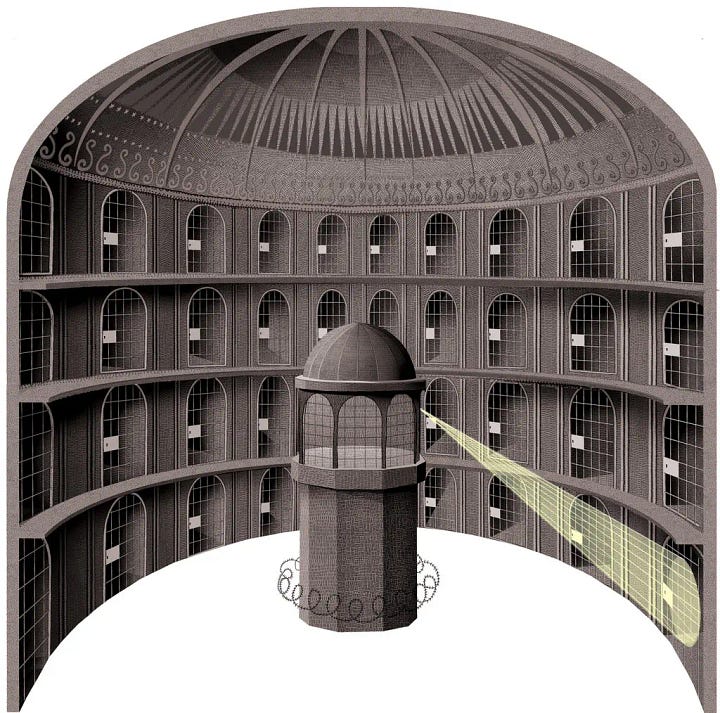

I never saw this as about me. I am part of the educated elite! I imagined the panopticon as a tiny diorama, a prop for a 1950s sci-fi show. Besides, I had always strived to be a teacher’s pet, cozy under their wing as they yelled at a more wayward child.
Now I see how thoroughly disciplined I am. When I paint, it takes a while to shake off the sense of performance, to kick aside the row of critics. That’s what makes a flow state so marvelous. You are lost to the ego police.
I wonder to what extent this discipline serves me, and whether the limiting aspects can ever be unlearned.


Details of High Touch.
As Katie and I turned from politics to look at my work, we talked about how discipline and freedom show up. I am constantly striving for freedom, but intrinsically need to ask (myself) for permission. Is it school? Parenting? As children we are taught limits, and it helps us feel safe. Children raised with clear and reliable limits are able to live into their imaginations, free to play and be joyful, knowing they are safe and on some level, being watched.
Painting lives out the question, “What if…?” I test the limits of my own discipline, and the discipline of painting itself. I do my best painting when I start with the attitude, “Let’s fool around and find out!”
High Touch. A painting I just finished. 7x10’. Acrylic on canvas. 2024.
I want to think more about the difference between internal and external discipline. And how we differentiate to discipline from to punish? How can we heal this deep dark longing to be punished? Tell me what you think.
Soon we will find out just how much our country wants Daddy to come punish us. Please cast your vote for letting a judicious woman lead us instead.
Don’t forget! This show in Austin in around the corner. Are you showing in the Austin Studio Tour? Let me know. I’ll be sending out my rec’s soon.
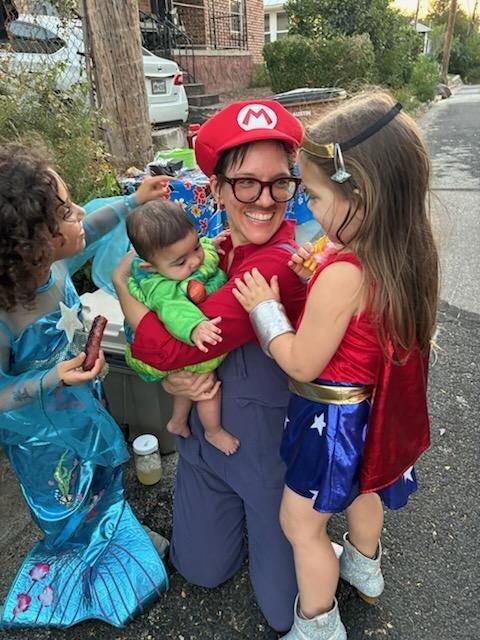
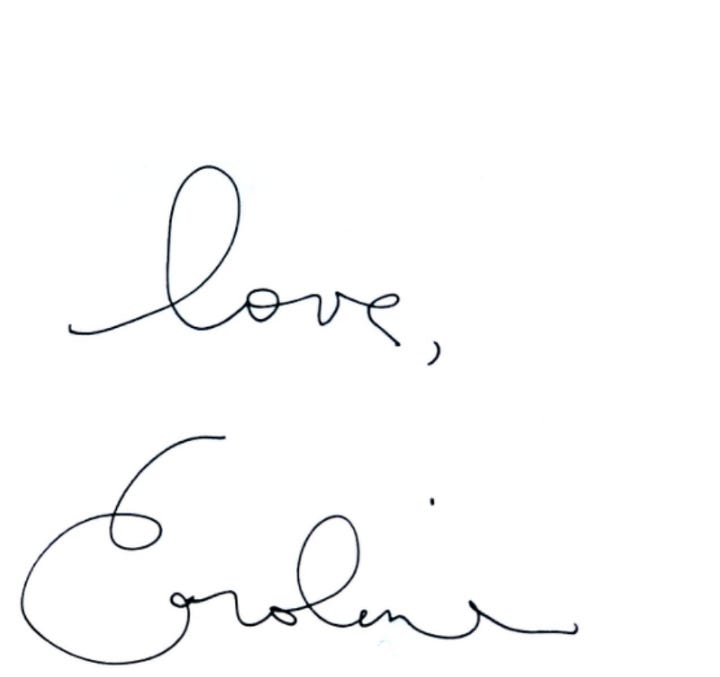
It’s an elegant book published by Yale Press that details the experimental use of paper in the work 1960s American artists Carolee Schneemann, William Anastasi, Richard Tuttle, Robert Morris, and Charles White. The book was in progress for 10 years, giving Anania the opportunity to engage with Schneeman, Morris, and Anastasi directly while they were still alive, as well as Richard Tuttle, who is still alive.




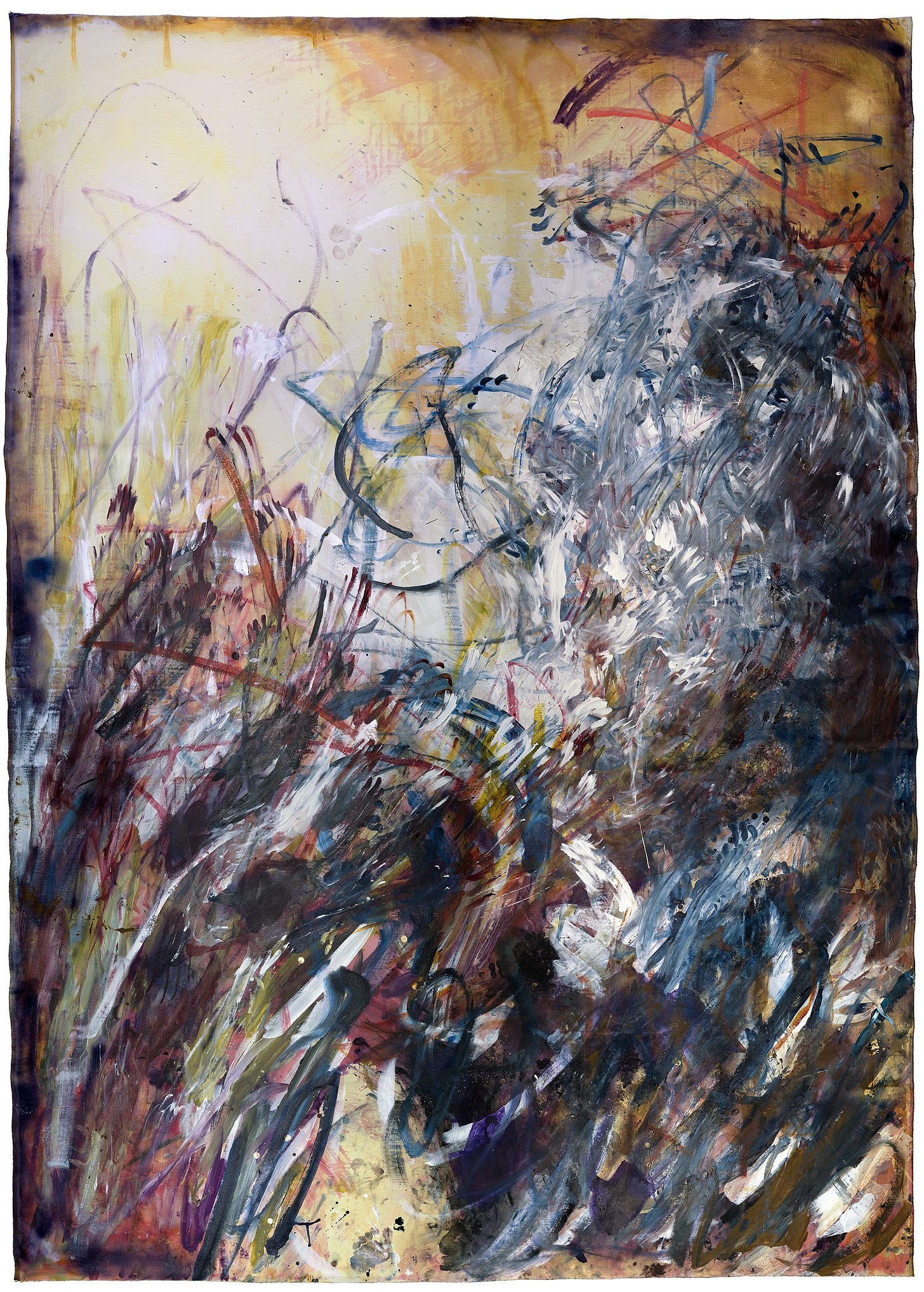

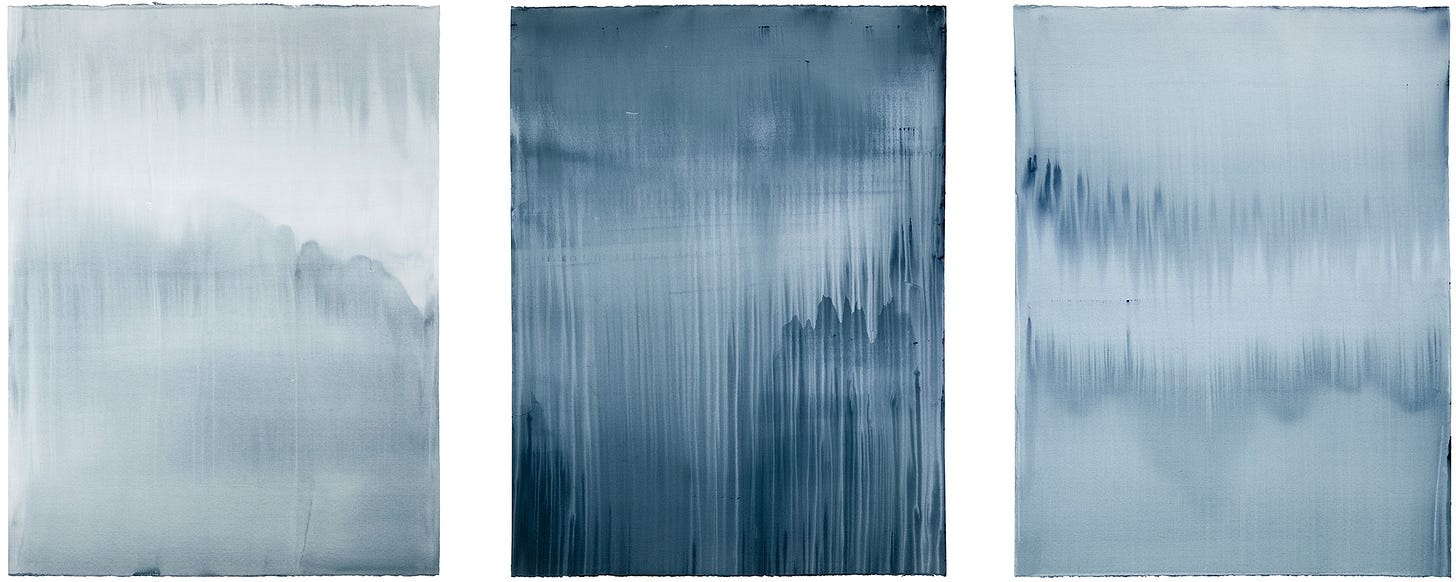
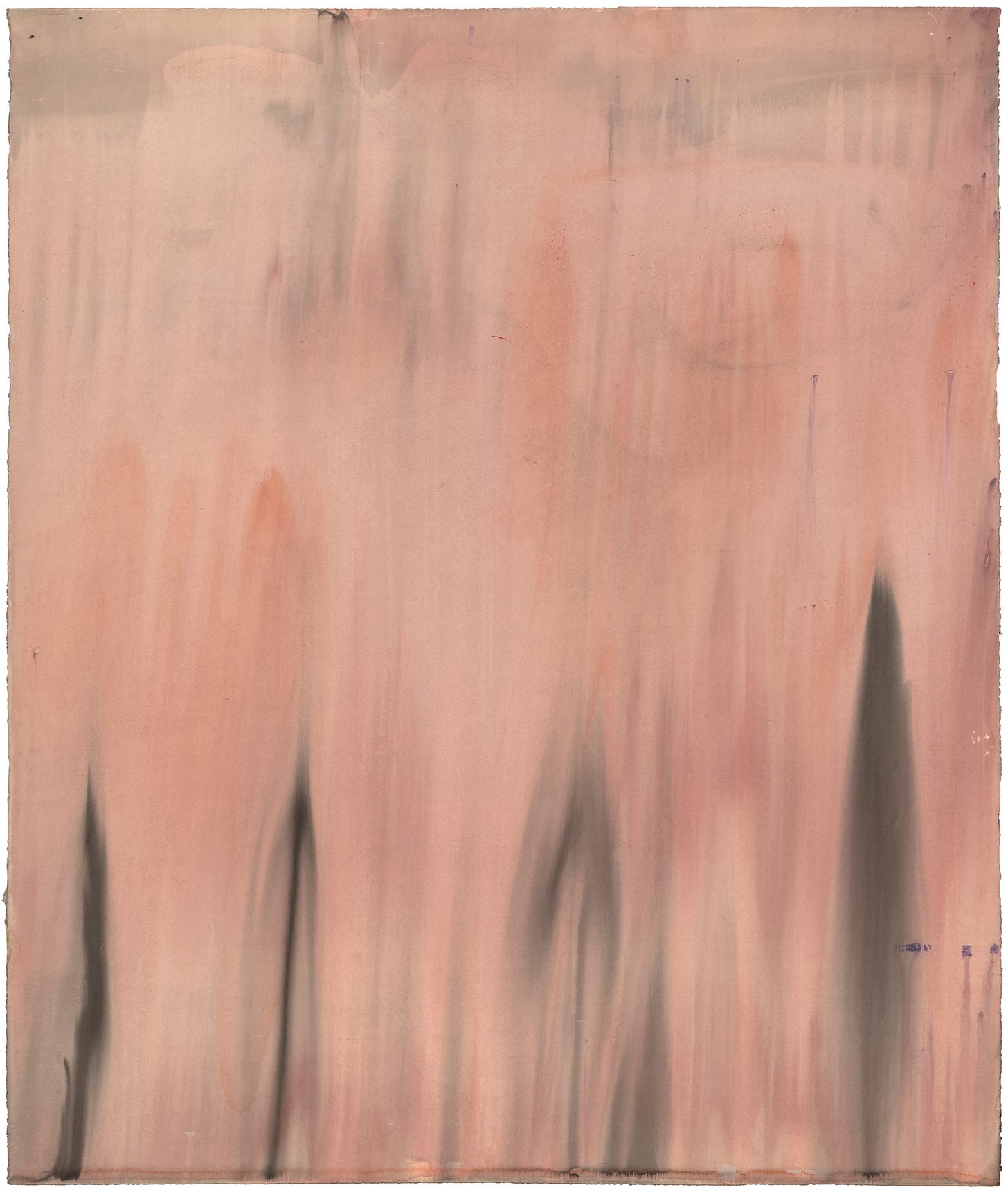


Discipline, we learn as our children grow is not the responsibility we teach, but the need we feel to "be the example". It is out act of growing into our ideals that discipline our lives. We practice art to become better.
All "art" is a product of the unconscious mind. You and the Greeks know that:)